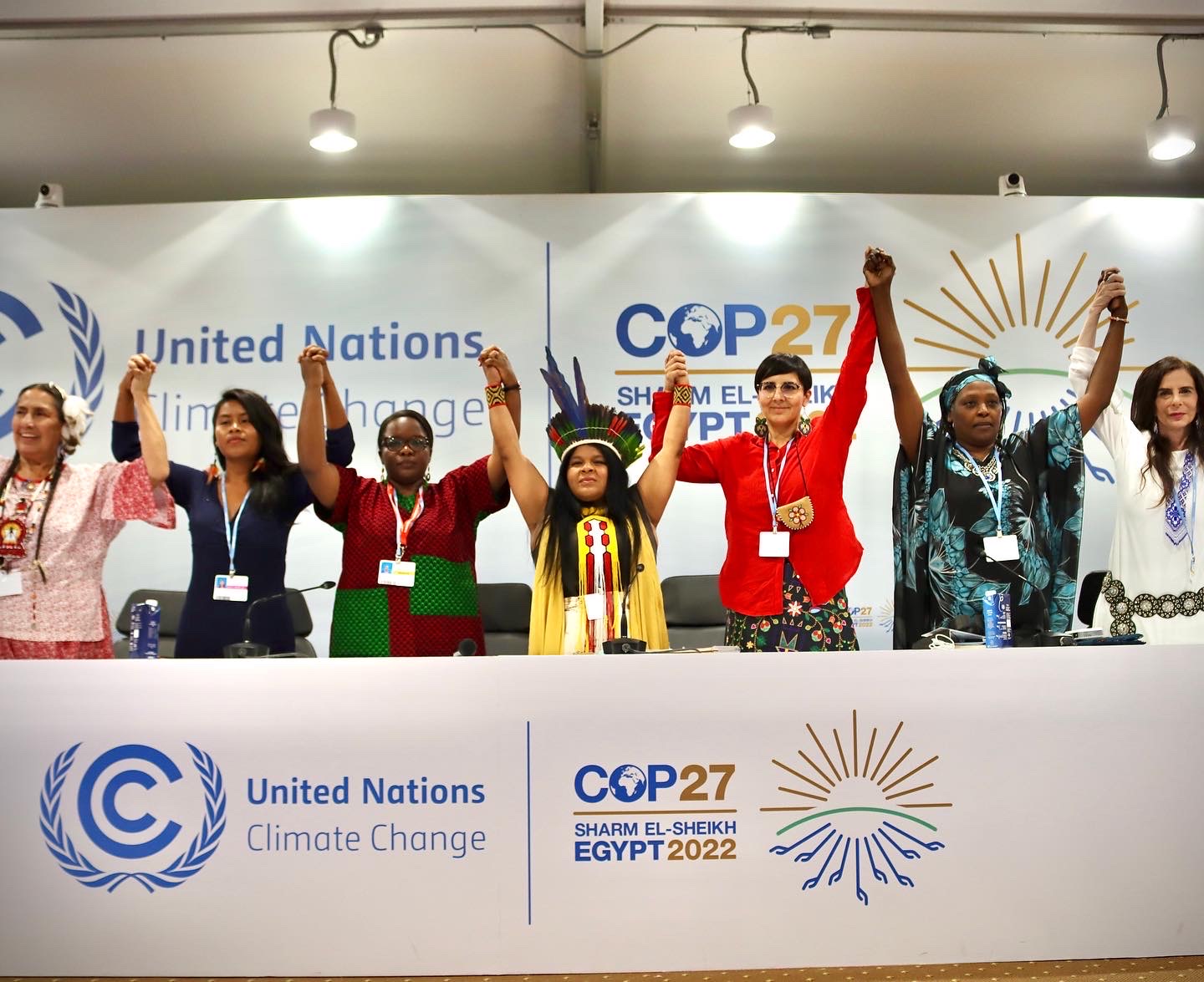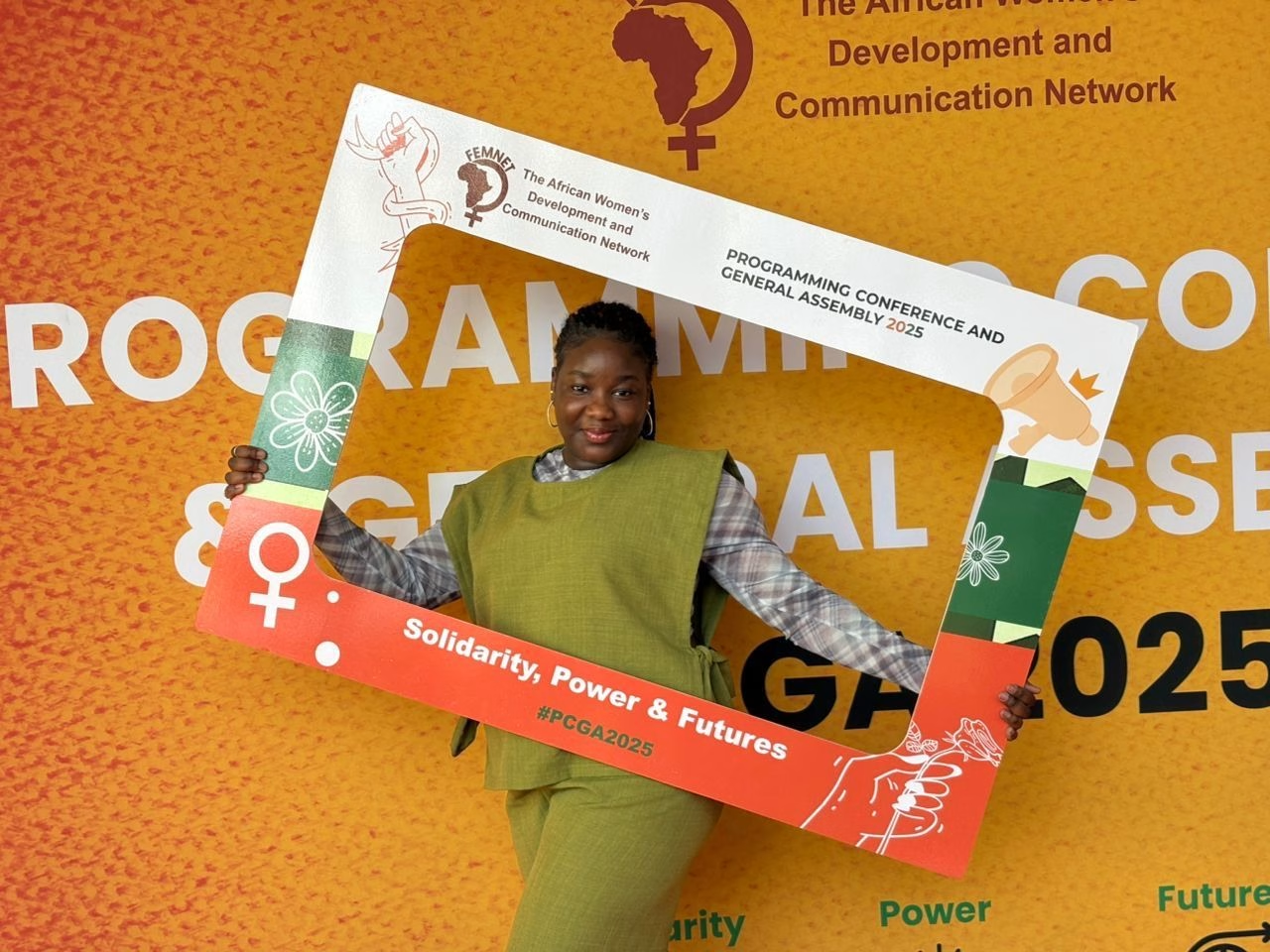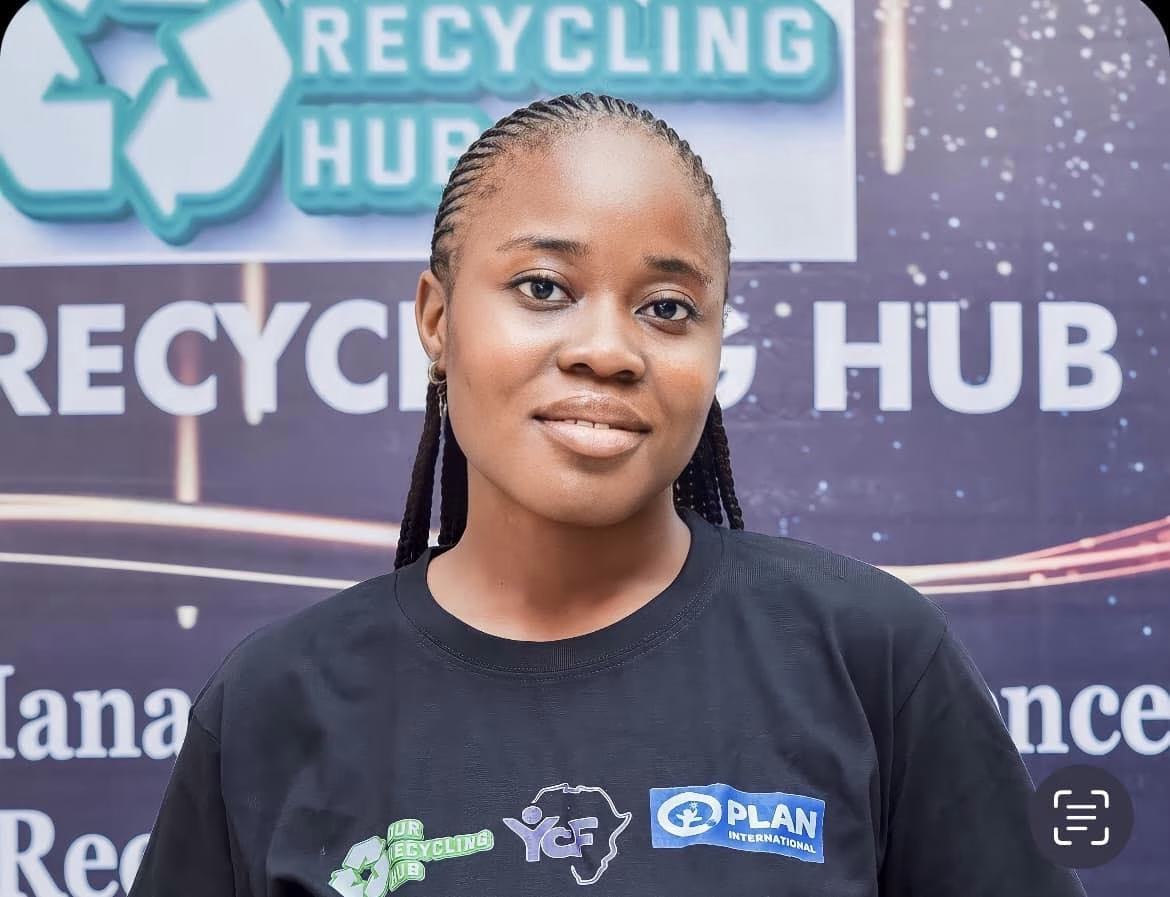
The African Eco-Feminist Journey to COP 27
Our African eco-feminist journey began in May 2022, with the launch of the very first African Feminist Academy for Climate Justice (AFACJ) in Ghana. A one of a kind space where women activists, advocates, feminists, journalists and movement leaders from indigenous and marginalized communities assembled to advance the discourse of climate justice while at the same time challenging the supremacy of patriarchy. Converged from 25 countries across Africa, the women not only shared their knowledge and experience but also underscored the vitality of feminist principles and the necessity of feminist intellectual constellations and untold narratives in the climate space.
From Ghana, we shifted gears to Zimbabwe, and convened women, indigenous and frontline communities from Kenya, Uganda, Ethiopia, South Africa, Mozambique, Ghana, and Zimbabwe, to discuss our way of life as Africans and develop a movement building strategy. We learned that communities lost their land and livelihoods to tourism and trade. We also noted that the existing coal mines maimed and killed many due to underground fires, and worse still young girls and women were sexually assaulted while fetching firewood and other errands. Many more have been displaced to make way for dams that have not yielded increased electricity access to these communities. We stood in solidarity with communities, women and advocates and developed a movement building strategy that centered an eco-feminist ethic and contained a set of key demands. Here, we appreciated the special nurturing relationships that women had with nature in the past and yielded to intersectional movements that recognized the well-being of women and nature as one.
From Zimbabwe, we went to Namibia in October 2022, where we held a Feminist COP at the heart of a raging crisis in Nigeria. Nigeria is reeling from unprecedented flooding that affected 34 out of 36 states. As I write this, they are still responding to devastating effects of the floods. Women and girls in all their diversity have been affected in so many ways. They have been displaced, are missing school, they do not have food to eat and they have to fight off reptiles which infest these waters. This climate induced disaster came soon after flooding that affected a third of the Pakistani nation and unprecedented drought in the horn of Africa that are said to be affecting at least 22 million people. And so, bringing women from East, West, North and Southern Africa, and allies from the global south, we sought to understand just how such disasters brought about by climate change affected the women and girls with whom we share so many struggles. These women and girls are losing hope, but through moving and emotional story-telling, we relate in our shared struggles and sought to understand how women are adapting to the crisis. The stories of loss and damage allowed us to frame issues by ourselves with a renewed sense of purpose, solidarity and understanding that there can be nothing about us without us if we are to find solutions and financing that respond to our lived realities. We worked collaboratively and expanded on the demands we had created in August in Zimbabwe, and had them co-signed by these amazing women and girls of Africa. With this knowledge, understanding and solidarity, we marched on to COP 27, which is the Conference of Parties to the United Nations Framework Convention on Climate Change (UNFCCC).
For the first time, FEMNET was accredited as an observer to the UNFCCC. We anticipated that this would enable us to support at least 30 women to COP 27 but only found ourselves with 2 slots. Our partners were gracious enough to offer us accreditation slots, and with these, we applied for our visas. Sadly, some visa processes were so elaborate that some gave up along the way. Visa parity is an issue we had spoken about earlier in the year, during the #AfricaCSW66Disrupt Commission on the Status of Women (CSW) held in Nairobi, Kenya. At COP 27, we found ourselves lonely, yet not alone. Our reality resonated with indigenous people, the youth, women from the global south and other women of Africa. We spoke to a narrative that the Africa Group of Negotiators (AGN) spoke to, that the Least Developed Countries (LDCs) and the Alliance of Small Islands States (AOSIS) knew only too well and spoke to. We knew that we wanted grant (and not loan) financing to deal with rapid onset disasters that underpin the losses and damages we experience because of the climate crisis. We also knew that we wanted women’s issues at the forefront, and a greater understanding and appreciation for gender within context, and how it would advance the women’s agenda. We also knew that adaptation needed to be funded in unique ways, and that our voices could be captured in developing solutions to a crisis that we did not create. We realized that we had solutions.
We take note of the progress made on key agenda items and envisage the operationalization of a loss and damage finance facility (LDFF) while calling for all voices to give input to the transitional committee that will deliberate on modalities for this mechanism. We would like gender financing that will support communities and states to raise awareness on the linkage between the disasters we face and the climate crisis, while also having communities, and particularly women, support in reporting and monitoring issues within the nexus of gender and climate. We welcome the deliberate involvement of young women, indigenous women and women from local communities in the implementation of the Gender Action Plan and the encouragement for gender responsive climate finance. We also welcome gender responsive texts on the Green Climate Fund particularly because of the role it will play as we deliberate on these issues. We welcome Paris-aligned financing from Multilateral Development Banks (MDBs) which should be in the form of grants. We welcome consultation that will bring granular data (grey & scientific) for greater understanding and composition of the New Collective Quantified Goal on Climate Finance. We also welcome the expanded Global Goal on Adaptation but note that this is a process that will take time. We reiterate our demand that the promise of USD 100 billion be met, and now that human rights language has been embedded in the final COP 27 text, we demand greater accountability from those states responsible for the climate crisis.
As we shift gears to think about biodiversity and other issues, we intend to ground our work henceforth on structural politics that will ensure that we center the issues faced by women, indigenous and marginal communities on an ecofeminist ethic that will emancipate both nature and women. We thank our partners: Voix de Femmes in Burkina Faso, Union of Ethiopian Women and Children Associations (UEWCA) in Ethiopia, WOKIKE in Kenya, Education as a Vaccine in Nigeria, MULEIDE in Mozambique, RECODE in Senegal, NAGAAD Network in Somalia and the Climate Action Network-International in South Africa for journeying with us throughout 2022.
For more information contact Anne Songole, FEMNET’s Climate Justice Coordinator, a.songole@femnet.or.ke
Related Tags
Related Posts
Mama Sampy: Championing Girls’ Rights and Education in Mali
At just 22 years old, Mama Sampy from Mali has emerged as a powerful advocate for girls’ rights,
Learn MoreHajaratu Bangura: Championing Environmental and Gender Advocacy in Sierra Leone
Hajaratu Bangura, a 24-year-old youth advocate and environmentalist from Sierra Leone, is making waves in community activism through
Learn More

